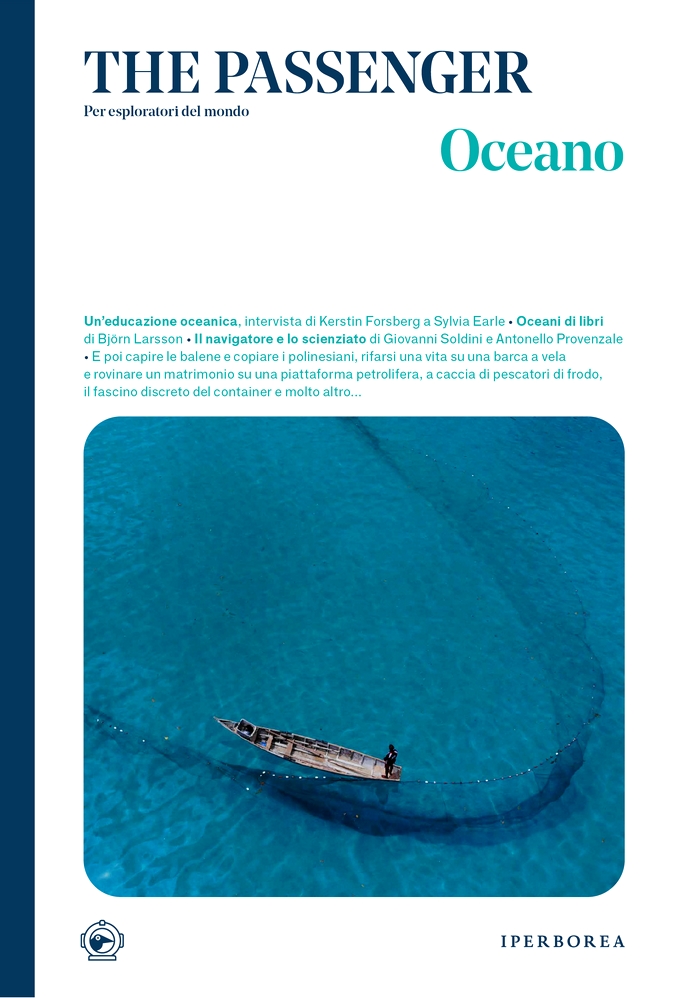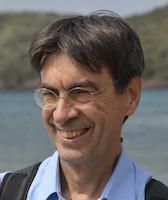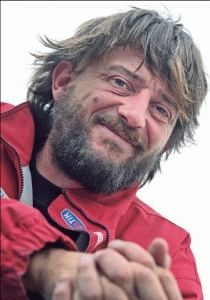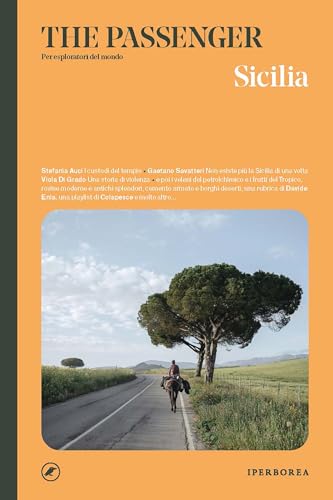
Part of Series
Authors

Antonello Provenzale (1958) si è laureato in Fisica nel 1982 e ha conseguito il Dottorato di Ricerca in Fisica presso l’Università di Torino nel 1987, con una tesi sui moti turbolenti a grande scala in oceano. Ricercatore presso il Consiglio Nazionale delle Ricerche dal 1987, è Dirigente di Ricerca dal 2007. Dal 2015 è direttore dell’Istituto di Geoscienze e Georisorse del CNR, con sede principale a Pisa. Dal 2000, l’attività di ricerca si è focalizzata sempre più sulla dinamica del clima planetario, sulle interazioni fra geosfera e biosfera e sugli impatti dei cambiamenti climatici su ciclo dell’acqua, incendi e processi eco-idrologici. Recentemente, si è dedicato sullo studio della “Critical Zone”, lo strato vivente fra il fondo dell’acquifero superficiale e la cima della vegetazione che include le falde, il suolo e gli organismi che lo abitano, la vegetazione, e tutti i processi fisici, chimici, geologici, geomorfologici e biologici che controllano l’alterazione delle rocce, i cicli biogeochimici e il funzionamento degli ecosistemi terrestri. Collabora con il Parco Nazionale Gran Paradiso, con cui ha promosso la creazione del primo osservatorio di Critical Zone italiano all’altopiano del Nivolet.


Simon Winchester, OBE, is a British writer, journalist and broadcaster who resides in the United States. Through his career at The Guardian, Winchester covered numerous significant events including Bloody Sunday and the Watergate Scandal. As an author, Simon Winchester has written or contributed to over a dozen nonfiction books and authored one novel, and his articles appear in several travel publications including Condé Nast Traveler, Smithsonian Magazine, and National Geographic. In 1969, Winchester joined The Guardian, first as regional correspondent based in Newcastle upon Tyne, but was later assigned to be the Northern Ireland Correspondent. Winchester's time in Northern Ireland placed him around several events of The Troubles, including the events of Bloody Sunday and the Belfast Hour of Terror. After leaving Northern Ireland in 1972, Winchester was briefly assigned to Calcutta before becoming The Guardian's American correspondent in Washington, D.C., where Winchester covered news ranging from the end of Richard Nixon's administration to the start of Jimmy Carter's presidency. In 1982, while working as the Chief Foreign Feature Writer for The Sunday Times, Winchester was on location for the invasion of the Falklands Islands by Argentine forces. Suspected of being a spy, Winchester was held as a prisoner in Tierra del Fuego for three months. Winchester's first book, In Holy Terror, was published by Faber and Faber in 1975. The book drew heavily on his first-hand experiences during the turmoils in Ulster. In 1976, Winchester published his second book, American Heartbeat, which dealt with his personal travels through the American heartland. Winchester's third book, Prison Diary, was a recounting of his imprisonment at Tierra del Fuego during the Falklands War and, as noted by Dr Jules Smith, is responsible for his rise to prominence in the United Kingdom. Throughout the 1980s and most of the 1990s, Winchester produced several travel books, most of which dealt with Asian and Pacific locations including Korea, Hong Kong, and the Yangtze River. Winchester's first truly successful book was The Professor and the Madman (1998), published by Penguin UK as The Surgeon of Crowthorne. Telling the story of the creation of the Oxford English Dictionary, the book was a New York Times Best Seller, and Mel Gibson optioned the rights to a film version, likely to be directed by John Boorman. Though Winchester still writes travel books, he has repeated the narrative non-fiction form he used in The Professor and the Madman several times, many of which ended in books placed on best sellers lists. His 2001 book, The Map that Changed the World, focused on geologist William Smith and was Whichester's second New York Times best seller. The year 2003 saw Winchester release another book on the creation of the Oxford English Dictionary, The Meaning of Everything, as well as the best-selling Krakatoa: The Day the World Exploded. Winchester followed Krakatoa's volcano with San Francisco's 1906 earthquake in A Crack in the Edge of the World. The Man Who Loved China (2008) retells the life of eccentric Cambridge scholar Joseph Needham, who helped to expose China to the western world. Winchester's latest book, The Alice Behind Wonderland, was released March 11, 2011.
- source Wikipedia


Giovanni Soldini è un velista italiano, divenuto famoso soprattutto per le sue navigazioni solitarie. A 16 anni compie per la prima volta nella sua vita la traversata dell'Atlantico. Nel 1989 vince la A.R.C.(Atlantic Rally for Cruisers), ovvero la regata transatlantica per imbarcazioni da crociera. Diventa famoso, come navigatore solitario, durante La Baule-Dakar del 1991. Per molti è lui il miglior navigatore solitario di tutti i tempi ed ha avuto il merito di far conoscere e avvicinare allo sport della barca a vela, centinaia di persone che hanno scoperto la passione per il mare e per la vela grazie alle sue imprese negli oceani sparsi per il mondo. È l'alba del 3 marzo 1999 a Punta del Este, nonostante l'ora, centinaia di persone in attesa, fra cui moltissimi giornalisti, fotografi e operatori televisivi, affollano i moli. Alle 5:55 ora locale (9:55 in Italia) FILA, il 60 piedi condotto da Giovanni Soldini, taglia vittoriosamente il traguardo della terza tappa dell'edizione 1998-99 della Around Alone, il giro del mondo a vela per navigatori solitari. Si conclude così felicemente un'impresa eroica la cui valenza sportiva, pur importante, è passata in secondo piano sopraffatta largamente dalla grande dimostrazione di coraggio del navigatore milanese protagonista del salvataggio di Isabelle Autissier, rovesciatasi in pieno Pacifico meridionale e lontana da qualsiasi possibile intervento di salvataggio per via delle condizioni meteorologiche. Se è vero, infatti, che Isabelle è una sua grande amica sicuramente Giovanni non avrebbe comunque esitato ad accorrere in soccorso di chiunque si fosse trovato in pericolo come nel caso di Marc Thiercelin, il più diretto rivale del navigatore italiano alla vittoria finale. Questi ha infatti disalberato in Atlantico subito dopo aver doppiato Capo Horn, ma ha rifiutato l'aiuto prontamente offerto da Soldini nonostante il francese solo pochi giorni prima, avesse addirittura chiesto la squalifica dell'italiano per il non essere più un navigatore solitario dopo il salvataggio di Isabelle. http://it.wikipedia.org/wiki/Giovanni...




